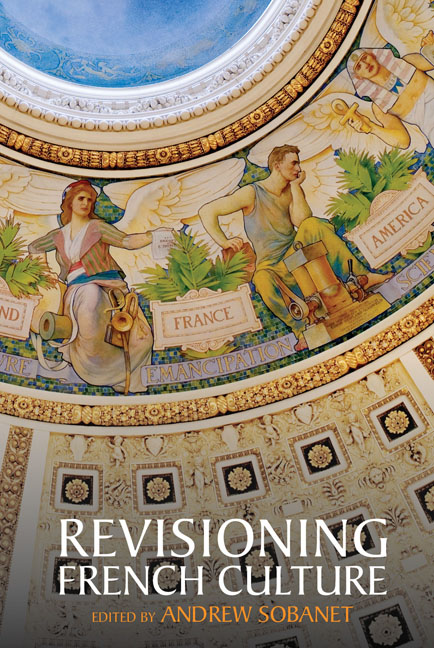Book contents
- Frontmatter
- Contents
- Introduction
- I France in Perspective: The Hexagon, Francophonie, Europe
- II Visions of the World Wars, or L’Histoire avec sa grande hache
- III Refractions and Reflections
- IV French Literature, Revisioned
- V The Subject in Focus
- VI Philosophical Lenses
- VII Coda
- Contributors
- Acknowledgments
- Index
9 - Between Acceptance and Betrayal: Sarah Kofman's Rue Ordener, rue Labat
- Frontmatter
- Contents
- Introduction
- I France in Perspective: The Hexagon, Francophonie, Europe
- II Visions of the World Wars, or L’Histoire avec sa grande hache
- III Refractions and Reflections
- IV French Literature, Revisioned
- V The Subject in Focus
- VI Philosophical Lenses
- VII Coda
- Contributors
- Acknowledgments
- Index
Summary
In 1983, Sarah Kofman published a short volume titled Comment s’en sortir? In it, she studies the discrete paths taken by the platonic and sophistic philosophical traditions in dealing with aporia, that is to say the moment in logic when one reaches unsolvable, insurmountable, contradictions: in Kofman's words, ‘des impasses angoissantes.’ There is, and she insists on this, ‘Pas d’aporie, a proprement parler, sans passage d’un état habituel qui offre toute sécurité, a un nouvel état, angoissant comme tel.’ At the end of the hundred-page essay on the question of the aporia in philosophical discourses, Kofman adds a ten-page addendum entitled Cauchemar. There she evokes her reaction to a study by linguist Bernard Cerquiglini where he points out that in medieval French the lexeme mar conveys a sense of foreboding and anguish and that the torment evoked by mar is still apparent in both French and English in such words as cauchemar [nightmare] or marginal. In the addendum that follows her essay on aporia, Kofman associates mar with personal memories. First, she has a moment of anxiety when she needs to rebook a flight scheduled for a mardi. The lexeme mar also brings up a childhood event when a bird or bat entered her room squealing that misfortune was awaiting. This, she recalls, is the anguish she felt as a child when she was punished by being left in a closet to be the prey of Maredewitch, the Jewish name of the bat-like avatar of Lilith. Finally, mar brings up the memory of a third event when she and her mother fled down the street named rue Marcadet. She associates this last nightmare with the moment when in February 1943, a man of the Kommandantur arrived to tell her mother that she must flee, for her name was on the list of Jews who would be picked up in the morning to be deported: ‘Le travail du reve avait su condenser en une seule image les deux figures terrifiantes de mon enfance: celle de l’homme de la Kommandantur, l’oiseau de malheur, celle de la vieille sorciere, Maredewitch.’
Over a decade later, in a book titled Rue Ordener, rue Labat (1994), Sarah Kofman returns to an evocation of her childhood during the war. Sarah's father, an orthodox rabbi, had been deported earlier in 1942 and died in Auschwitz.
- Type
- Chapter
- Information
- Revisioning French Culture , pp. 125 - 136Publisher: Liverpool University PressPrint publication year: 2019

